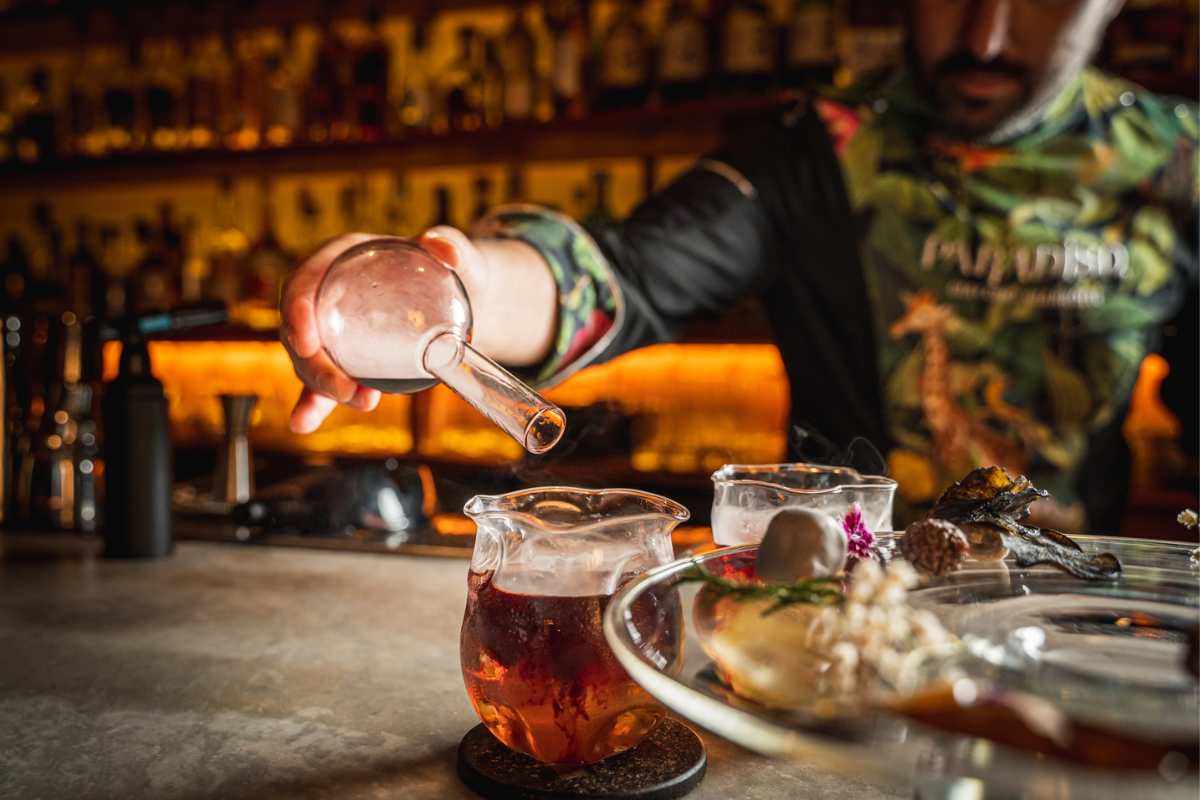Here’s how to both spot and stop animal tourism that’s abusive.

Did you know that every year between two and four MILLION people pay for un-ethical animal tourism experiences without realizing the harm that they are bringing to the wildlife involved? Until recently, I had no idea of these staggering figures and was very likely among one of the two to four million myself. To me, this raises the issue that not enough is being done to educate tourists on what is and what is NOT an ethical wildlife tourism experience.
Imagine that a friend came up to you boasting about how they were going to go cage diving with sharks in South Africa or riding elephants in Thailand – would you share the excitement or would you challenge them on the ethics of the experience?
I found myself in this very predicament just last month when a fellow passenger on a flight I was taking started boasting to me about getting a photograph with a sedated tiger in Thailand and how it was the highlight of his adventures around Asia. I was immediately disgusted when I saw his photo – seeing the torment that this precious animal was subjected to flash before my eyes – but was it my place to tell this friendly traveler that he shouldn’t have done that? This was one of the most awkward situations I have ever found myself in and it was from this moment that I decided that however socially uncomfortable it might be, I will NEVER stand idly by while tourists unknowingly participate in tourism experiences that are against animal welfare and/or conservation. I had a ‘Sliding Doors’ experience, as I saw how this man’s life could have diverged at that very moment as a result of my actions (or lack there of).
As a result of me not educating him on the unethical nature of his tiger experience, the man was very likely to continue down the same path and participate in similar unethical wildlife tourism experiences on his future travels. However, me educating him on the issue may have led to a world where the man at least thought about the consequences of his ‘photo op’ on the wildlife involved next time he participated in a similar experience, or in the least used our awkward encounter as an anecdote for his friends and family back home and perhaps inadvertently encouraged them to think about their actions on their future travels.
Although you can never truly be sure of what is going on behind the scenes, I’ve put together a guide of actions you can take before, during and after your trip to reduce your chances of supporting unethical wildlife tourism attractions and help others to do the same.
HERE ARE WAYS YOU CAN STOP ANIMAL ABUSE FOR TOURISM:

BEFORE YOUR TRIP
1. Research, research and more research
Make good use of the 21st century magic that is the internet to investigate the wildlife experiences that you plan to participate in before you book them. Investigate not only how the animals are treated but also where they came from and any training they required to prepare them for the experience? Don’t just rely on the official website for this information, but also check opinions shared by other travelers through websites like TripAdvisor. The most honest information about a particular experience can be sourced from others who have participated in the same experience. Whether it be friends, family or strangers, track down someone else who has experienced the attraction first hand and ask them questions.
2. Check with your tour operator / travel agent
If you will be traveling as part of a tour package organised by a tour operator or travel agent, check their animal welfare policy. For example, the animal welfare policy for sustainable tourism company G Adventures states that they carefully review all wildlife experiences offered as part of their tours to ensure that the wildlife involved are allowed the five freedoms – freedom from hunger and thirst, freedom from discomfort, freedom from pain, injury or disease, freedom to express normal behaviour and freedom from fear and distress.
3. Think outside the box
Carefully review what the experience involves. If you discover that it involves any of the following activities then you can be all but guaranteed that it is NOT an ethical wildlife experience: riding a wild animal, swimming with a captive wild animal, petting, holding or hugging a wild animal, washing a wild animal, keeping a wild animal on a chain or leash, watching a wild animal dance, play spot, perform tricks, give massages or paint pictures.

DURING YOUR TRIP:
1. Culturally acceptable does not equal ethical
Whilst it is important to always be respectful of the local culture when traveling, it is equally important to remember that culture is NOT an excuse for animal cruelty. I have heard on one too many occasions people justifying that elephant rides in South East Asia are acceptable because it’s part of the culture there and boy oh boy does this excuse get my blood boiling.
2. Think before you eat
Unethical animal tourism experiences can also extend into experiences trying the local cuisine. For many, dining on the local cuisine is a must, citing the old saying ‘It’s not wrong, it’s just different’. However, sometimes travelers find themselves faced with consuming a rare or endangered species. Eating these species is not just unethical but in many cases it is actually illegal. When trying local exotic foods, ALWAYS do a quick google search to check the endangered status of the animal.
3. Think before you buy
Similar to the above point, it is important to be aware of any wildlife trade that may be involved in the manufacturing of any souvenirs that you are thinking of buying. Purchase of these so called “locally-produced souvenirs” drive demand for illegal wildlife trade. Some of the more obvious examples are fashion (e.g. fur clothing, leather accessories or jewelry featuring bone, horn, shell, coral or ivory) and decorations (e.g. bone, shell and ivory carvings, shells and corals, animal skin rugs) but can be anything really!

AFTER YOUR TRIP:
1. Spread the word
Whether good or bad, it is important that you share your experiences with your friends, family and any social media contacts. Spreading the word will help others cipher out those ethical wildlife tourism experiences from those questionable ones.
2. Report and record
As the saying goes, if you see something – say something. If you witnessed any unethical treatment of wildlife on your travels be sure to not only report it to the appropriate local authorities but to also record it on the relative TripAdvisor page for future visitors to be aware of also.
3. Don’t be afraid to educate others
If you find yourself in a situation such as I did where someone is boasting about an experience that is known to be harmful to wildlife, don’t be afraid to tell them. Chances are they were oblivious and will think twice before they blindly involve themselves in unethical animal tourism experiences in the future.

To close off (and pull on your heart strings in case my prose failed to convince you of how ridiculously lucky we are to have each and every animal that we have on this planet), here’s some photos to encourage love for all creatures – great and small. Let’s all help stop animal tourism that’s abusive!








Photos by Elle Gillard & Nicola Easterby
Elle is a world-wanderer, star-gazer, dog-lover and meteorologist in the making. When she’s not busy studying the Earth’s climate, she’s off experiencing it first hand all around the world. Over the past 3 years, Elle has traveled to 31 countries across Europe, Asia, Oceania and the United States and has no plans of stopping anytime soon. You can follow her colorful adventures on her Instagram, Facebook and at thisisyugen.com.
For more sustainable travel, read these posts next:
- The Importance of Being Culturally Educated When Travelling
- 10 Ethical/Sustainable Clothing Brands that You NEED on Your Radar
- HOW TO: Minimize Your Environment Impact Whilst Travelling
Enjoyed this post on how to stop animal tourism that’s abusive? Pin it for later!






